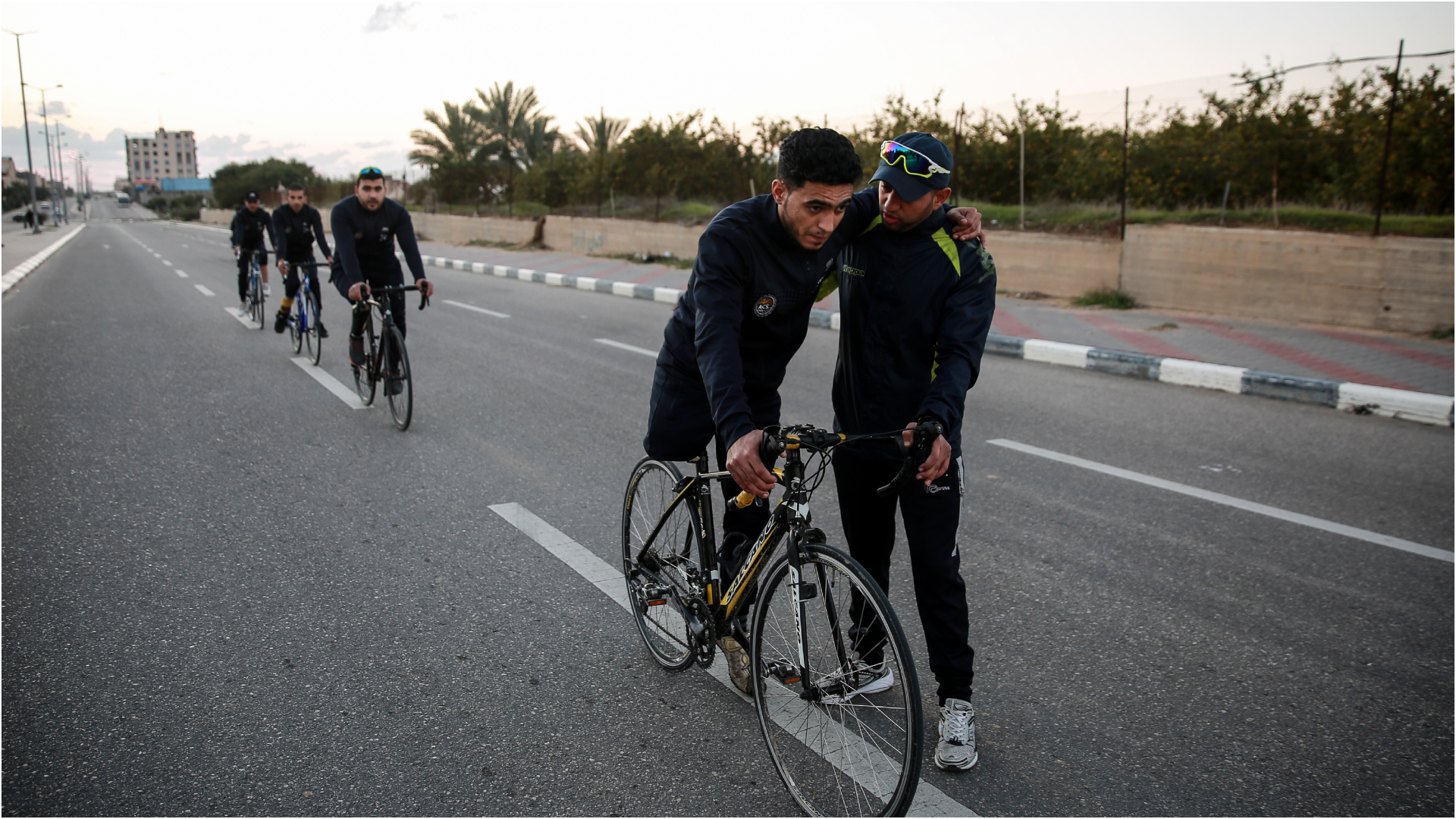
The headlines have been inescapable over the past six months: the war between Israel and Palestine is one of the most globally divisive events in recent years.
Despite the political unrest between leaders of Israel and Palestine, the civilians of each country have found ways to remain hopeful for peace and a return to normalcy and security in their respective homelands.
One group of Gaza residents is finding hope in a way nearly all of us can relate to: riding a bike.
The Gaza Sunbirds is Palestine’s only paracycling team and against all odds, the team is persevering during this trying time with their sights set on getting at least one team member qualified for the 2024 Paris Paralympic Games this summer.
Founding the Gaza Sunbirds
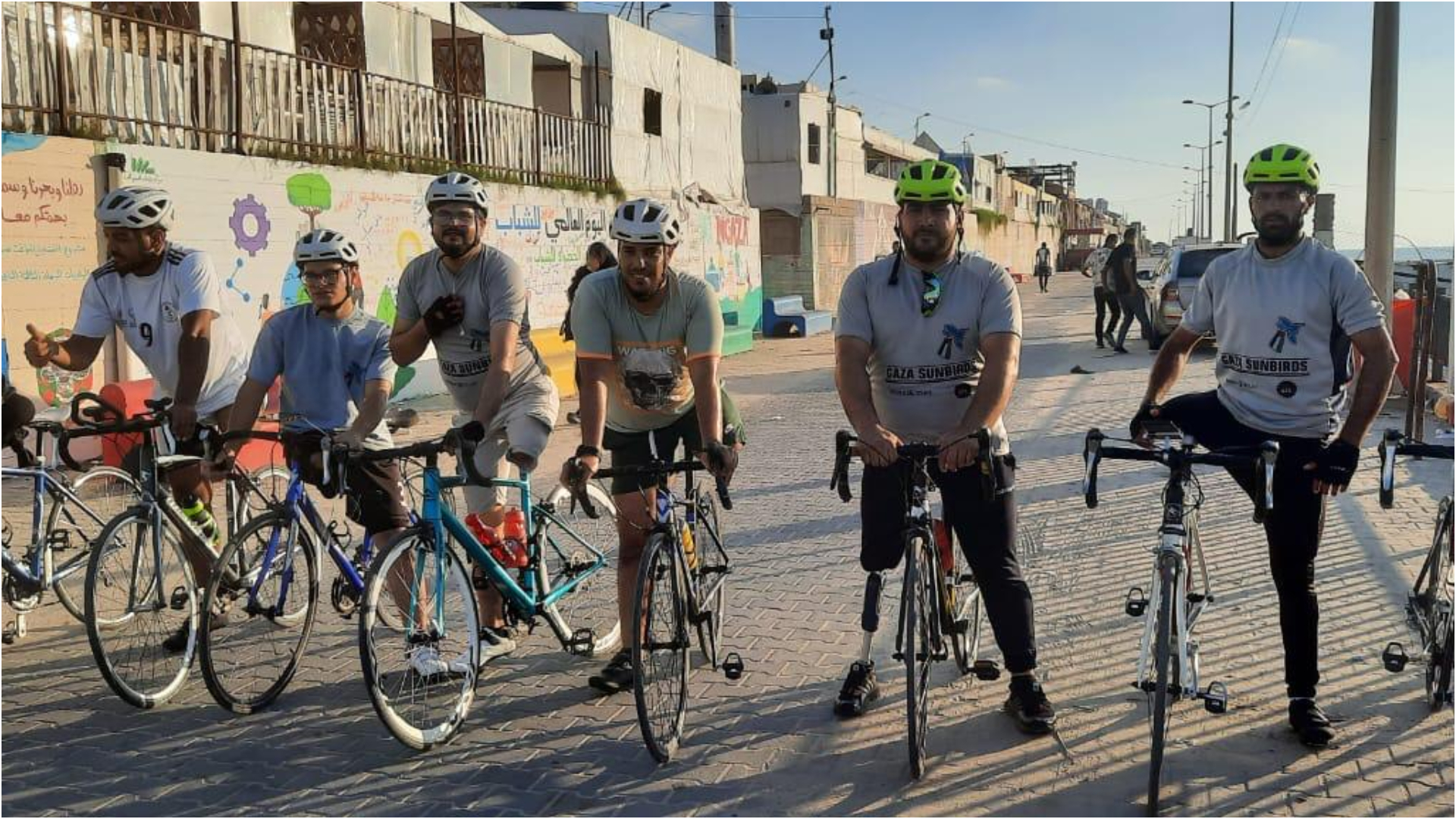
Alaa al-Dali never imagined he’d one day be a potential candidate for the Paralympic Games. Prior to 2018, al-Dali was a dedicated cyclist - riding from one end of Gaza’s West Bank to the other with the two legs he was born with. Al-Dali poured himself into cycling and was slated to head to the Asian Games in Jakarta later in the year.
“The year” had different plans for al-Dali.
In March 2018, al-Dali attended one of the frequent demonstrations in Gaza, this one near a separation fence between Rafah and Israel. While standing in his cycling gear with his bike, al-Dali suddenly felt intense pain. He had been shot in the leg by a sniper at the demonstration.
Unable to enter Israel to receive medical care, due to not receiving the standard - yet hard to get - permit to enter Israel, al-Dali's condition deteriorated to the point where he had to choose between amputating his leg or losing his life. His situation, sadly, was not unique - the non-profit Save The Children International estimates that currently, up to 10 children in Gaza are losing a limb each day.
Having chosen the former, al-Dali was re-learning how to ride a bike as Palestine’s first-ever paracyclist, within two months.
It wasn’t until a videographer, Flavia Cappellini, visited Gaza later in 2018 to chronicle al-Dali’s story that the idea for the Gaza Sunbirds was conceived. Cappellini captured al-Dali’s story and returned to London to have her work translated for global viewing.
Up to 10 children in Gaza are losing a limb each day.
Save The Children International
Cappellini’s friend, London-based Palestinian and recent college graduate Karim Ali, offered to translate the video from Arabic to English.
“At the time, I didn’t care about cycling. I’m not a very sporty person, I’m into science and technology,” Ali says. “But I was like, ‘You know what? Let’s help this guy; his story is so straightforward and incredible.’”
Ali was so taken with al-Dali’s story that he became increasingly interested in helping the growing number of amputees in Gaza who needed an outlet for community and athletics. Eventually, the pair - alongside coach Hassan Abu Harb - hatched the plan for a paracycling team. Due to a lack of funding and resources, the Gaza Sunbirds didn’t become a reality until 2020, when several journalists and activists helping to make the program a reality.
“We were incredibly inexperienced [team leaders] when we first founded the team,” Ali says. “We needed to figure out how much equipment cost to get into Gaza and those showing up to learn more were coming, never having ridden a bike before, often wearing flip flops because they of course didn’t own any cycling equipment.”
In the first year, the Sunbirds were able to support 10 athletes, but not without facing some serious challenges.
The Harsh Reality of Paracycling in Gaza
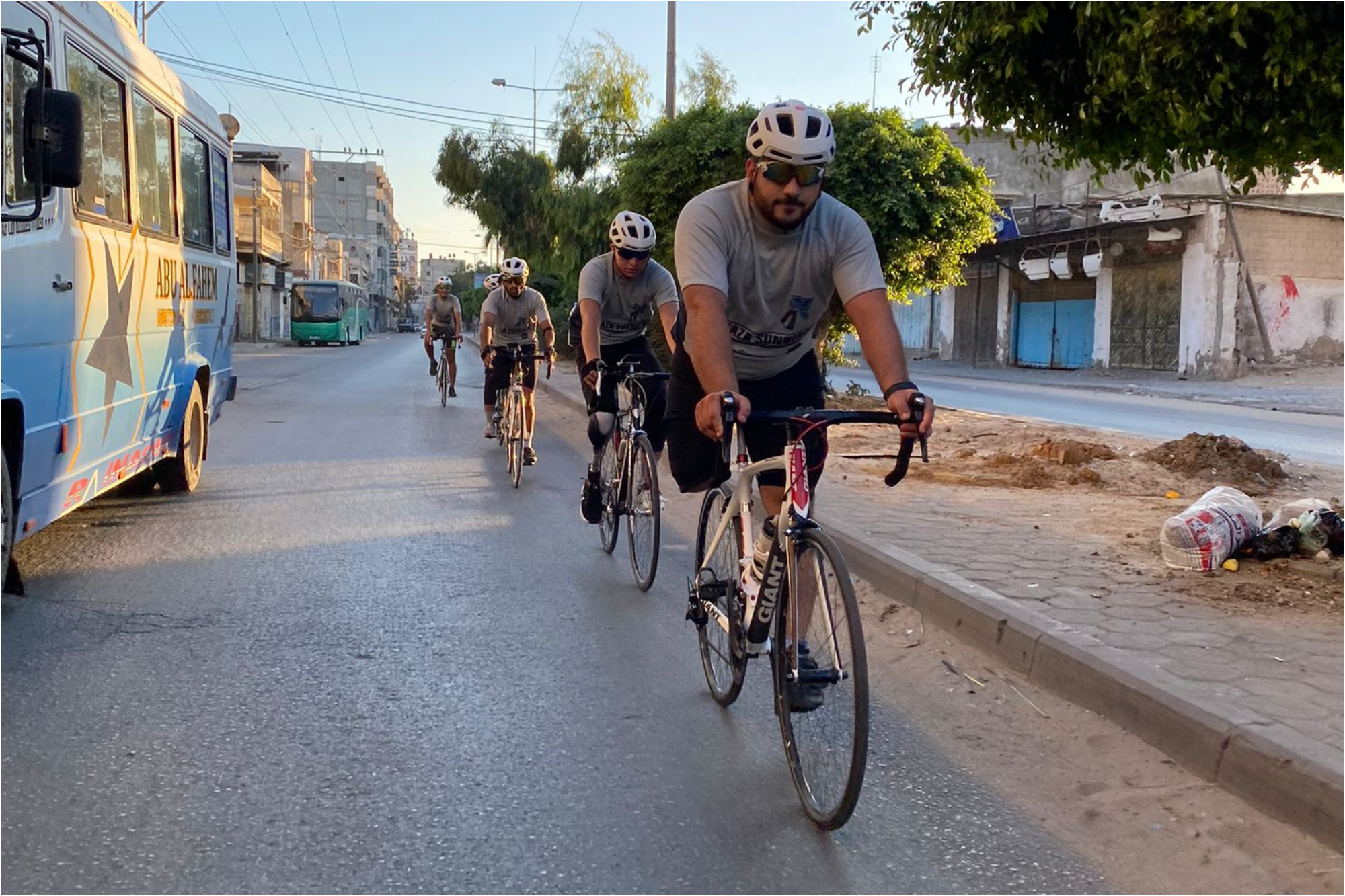
Those with amputations in Gaza often do not receive the level of care needed to effectively heal their injuries, according to Ali.
“The state of medicine is so poor in Gaza that one person may need upwards of six amputations to completely fix infections or account for bone and muscle growth at the site of the amputation,” Ali says. “Additionally, there is no infrastructure in Gaza: no public transportation, no sidewalks, and some of the team don’t even have crutches to use. We had a lot of logistical challenges to contend with in year one; how do we even get guys to practice if they have no transportation there?”
Nearly all of the Sunbirds athletes ride their bikes without leg prosthetics. Prosthetics are expensive and often inaccessible to Gazans, so the Sunbirds learn to ride with one leg.
After a round of significant fundraising in the early 2020s, Ali and the Gaza Sunbirds leadership team are able to slowly import bike helmets, cycling shoes and bikes into Gaza. Often, the equipment takes more than two months to arrive in Gaza but once there, it has proved invaluable to the Sunbirds members, who would use the bikes not only for recreational riding, but as transportation around Gaza.
With the influx of equipment, the Sunbirds were able to hold regular practices and provide amputees in Gaza the opportunity to learn to ride and form a community with other paracyclists. By mid-2023, the team had about 20 sustained members and five training sessions a week: two for beginner and intermediate paracyclists, two for advanced paracyclists and one for kids from the ages of 12 to 18, led by Team Captain Ali Hasan.
A New Mission
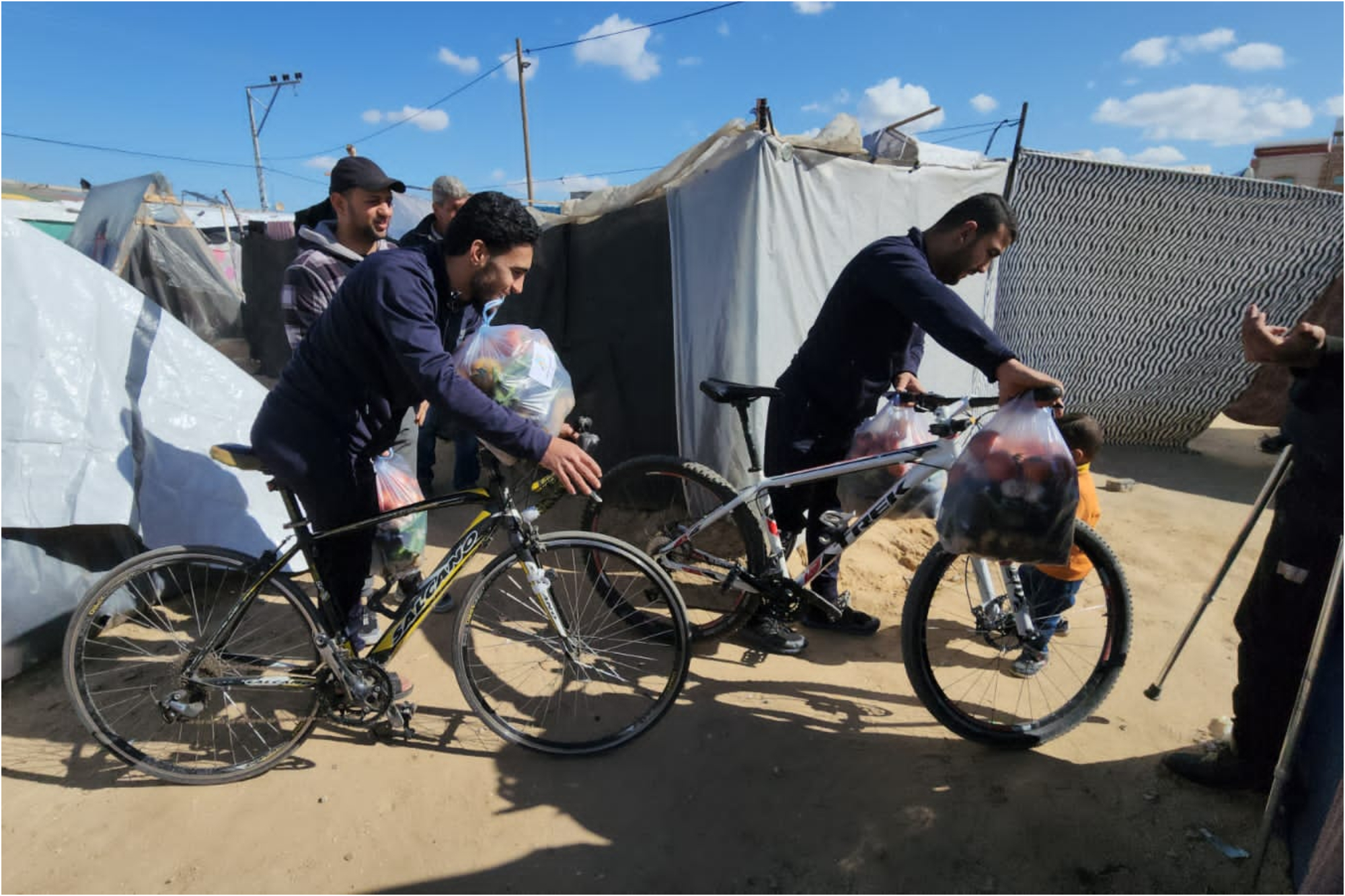
When the conflict with Israel began in late 2023, the mission of the Sunbirds shifted drastically. The team went from having regular practices to using their bikes to transport food and supplies to local neighborhoods.
“I was able to send money to some of the team leaders in Gaza to help them buy bread to distribute at the start of the war,” Ali recounts. “The team eventually bought out the remaining essentials like tinned food and sanitary products from stores and the team would use their bikes to get these products to hard-to-reach and dangerous areas of Gaza to distribute them for free. The team essentially became a mutual aid operation.”
According to the team’s website, to date, the Gaza Sunbirds have thus far distributed approximately $140,000 worth of aid, 2,050 meal parcels, 4,900 hot meals and hygiene kits to 500 beneficiaries.
In addition to using their bikes to share aid with fellow Gazans, the Sunbirds set up bike clinics in housing camps to keep children entertained and to provide some sense of normalcy. More than 80% of the team no longer have homes.
“The team members have tried to stay close to each other despite the volatility in Gaza,” Ali says. “Some still have their bikes and will use objects like phones or tins for cones and create clinics and drills for kids as psycho-social support during this time.”
Looking Ahead to the 2024 Paris Paralympics
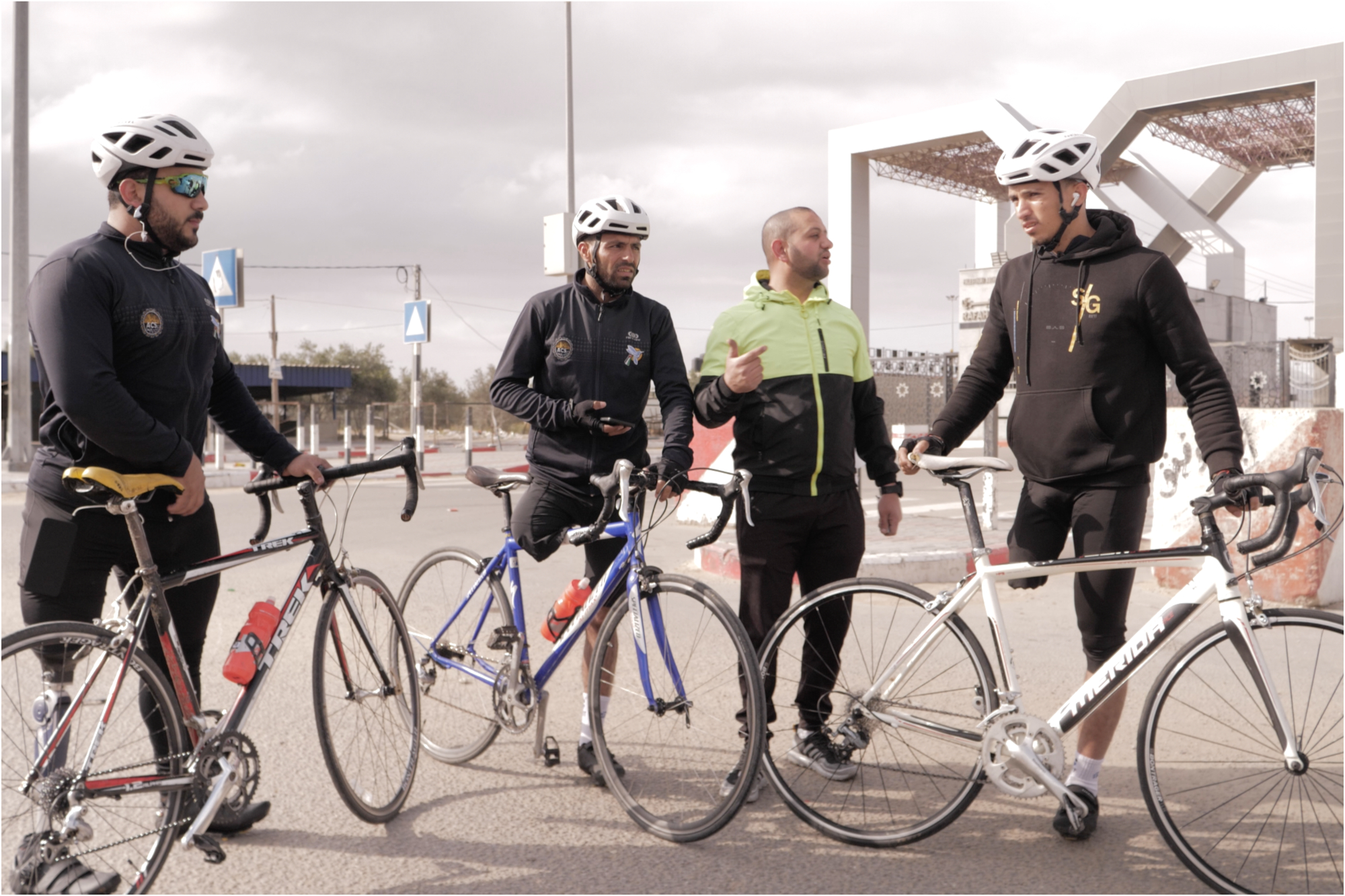
The conflict between Palestine and Israel rages on, with civilians on both sides hoping for a return to normalcy sooner than later.
In the past month, Ali and al-Dali have worked tirelessly to get three team members visas to depart Gaza for Belgium to compete in the second of three rounds of the Paracycling World Cup in Belgium on May 2-5. On April 27, the team announced via social media that al-Dali, Coach Hassan, and team member Mohammed Asfour were granted Belgian visas to travel for the World Cup.
The journey to Belgium was a success, and al-Dali competed in the men’s C2 category in the road race and finished 25th. C2 classification is for those with unilateral amputation above the knee. Asfour competed in the C4 category for both the road race (35th) and the individual time trial (37th), which can involve those with unilateral below-the-knee amputations.
Al-Dali and Coach Hassan then travelled to Italy for the third round of the Paracycling World Cup on May 19. Al-Dali once again raced in the men’s C2 category in the road race, and finished in 22nd place.
Both al-Dali and Asfour competed without leg prosthetics in their races - they rode with one leg, in a field of competitors using cycling prosthetics.
Al-Dali now waits to find out if he will be able to represent Palestine at the 2024 Paralympic Games in Paris this summer: challenges with funding, visas and UCI sanctioning remain. In the meantime, he and Ali are traveling throughout Europe to meet with Gaza Sunbirds supporters and to fundraise for the team in the hopes of keeping al-Dali’s Paralympic Games shining bright no matter the darkness that tries to surround both Palestine and Israel.







